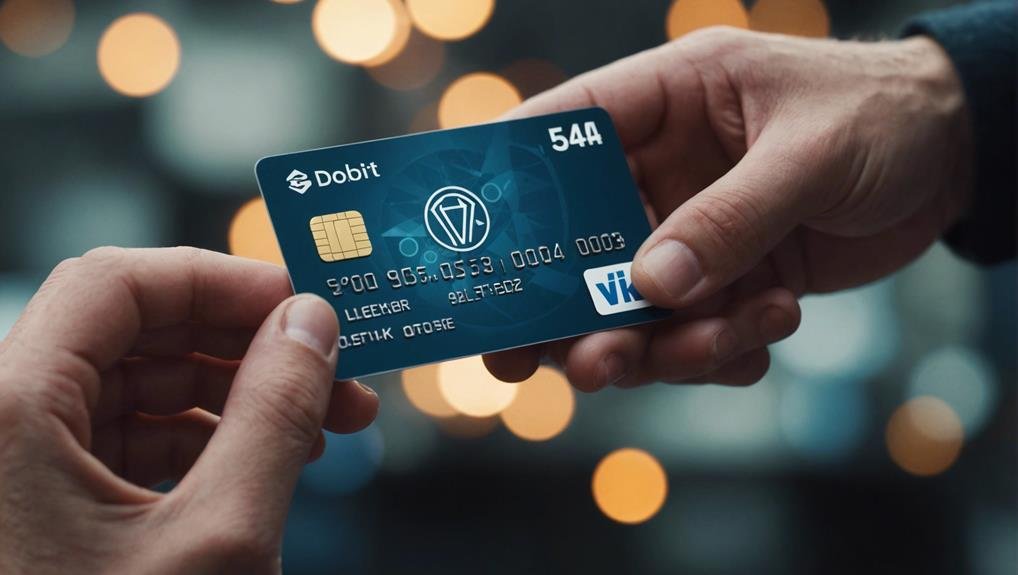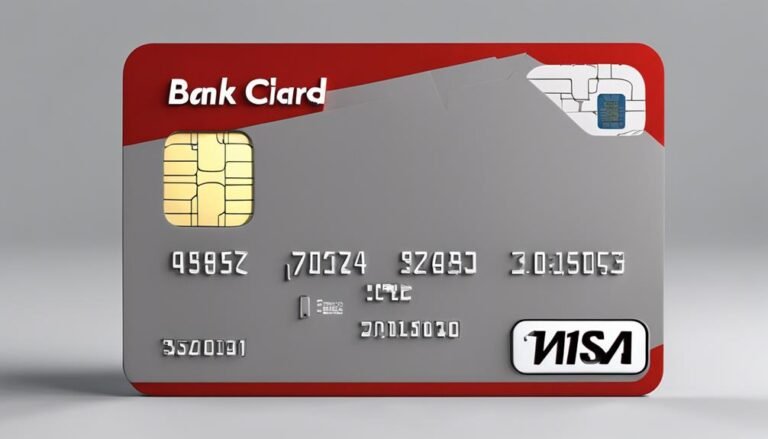Debit Card Definition, Fees, and How They Work
Understanding debit cards is key to financial management. They are secure, debt-free, and limit spending to what you have. Be aware of potential fees like ATM or overdraft charges. Monitor your transactions closely for any irregularities. Keep track of your spending and set limits to stay on budget. Maximize benefits by using cashback offers and smart budgeting techniques. Enhance security by keeping your PIN private and watching for fraud. Start with these basics to master your debit card usage and take control of your finances. More insights await for savvy users like you.
Key Takeaways
- Debit cards draw funds from linked bank accounts.
- Debit cards may have fees like ATM and overdraft fees.
- Debit cards limit spending to available funds.
- Debit cards offer convenience without debt accumulation.
- Debit cards provide security features like transaction alerts.
Understanding Debit Card Basics
Understanding the basics of a debit card is essential for managing your finances efficiently and securely. Debit cards offer advantages such as being safer than cash and not incurring debt. They also have disadvantages like limited spending to available funds and potential fees.
To use your debit card wisely, monitor your account regularly to track expenses and detect any unauthorized transactions promptly. Additionally, set up account alerts to stay informed about account activity and balances. Remember to safeguard your PIN and card information to prevent unauthorized access.
Exploring Debit Card Fees
To better manage your finances when using a debit card, it's important to familiarize yourself with the fees associated with its usage. When comparing debit card fees, be aware of potential charges such as ATM transaction fees, insufficient funds fees, overdraft fees, replacement card fees, and foreign transaction fees.
Analyzing debit card usage includes understanding that prepaid debit cards may have additional fees like maintenance fees, transaction fees, ATM fees, reloading fees, balance inquiry fees, inactivity fees, paper statement fees, and foreign transaction fees.
Managing Debit Card Transactions
When managing debit card transactions, closely monitoring your spending habits is crucial to stay within your budget and avoid unnecessary fees. Here are some tips to help you effectively manage your debit card transactions:
- Tracking Expenses: Keep a record of all your purchases to understand where your money is going.
- Setting Limits: Establish daily, weekly, or monthly spending limits to prevent overspending.
- Utilizing Alerts: Take advantage of transaction alerts from your bank to stay updated on your account activity.
- Reviewing Statements: Regularly review your bank statements to spot any discrepancies or unauthorized charges promptly.
Maximizing Debit Card Benefits
After effectively managing your debit card transactions to stay within your budget and avoid unnecessary fees, let's explore how to maximize the benefits of using your debit card.
To enhance your experience, consider implementing smart budgeting strategies. Monitor your spending regularly to guarantee you're sticking to your financial plan and making the most of your available funds.
Additionally, take advantage of cashback opportunities offered by some debit card issuers. These programs allow you to earn money back on qualifying purchases, effectively stretching your budget further.
Ensuring Debit Card Security
Strengthen the security of your debit card by actively monitoring your transactions and promptly reporting any suspicious activity to your financial institution. To safeguard the safety of your funds and personal information, consider the following measures:
- Preventing fraud: Regularly review your account statements and set up transaction alerts to detect any unauthorized activity.
- Securing PINs: Keep your Personal Identification Number (PIN) confidential and never share it with anyone.
- Using secure online platforms: Only make online purchases from secure websites and avoid sharing sensitive information over unsecured networks.
- Enabling card controls: Utilize your bank's card control features to set spending limits, restrict transactions, and enable/disable your card for added security.
Conclusion
To sum up, debit cards are a convenient and secure way to manage your finances. By understanding their basics, fees, and benefits, you can make informed decisions to maximize their use.
Remember, like a trusty companion on your financial journey, a debit card can help you navigate the waters of everyday transactions with ease.
So, next time you reach for your wallet, let your debit card be your guide to financial success.







